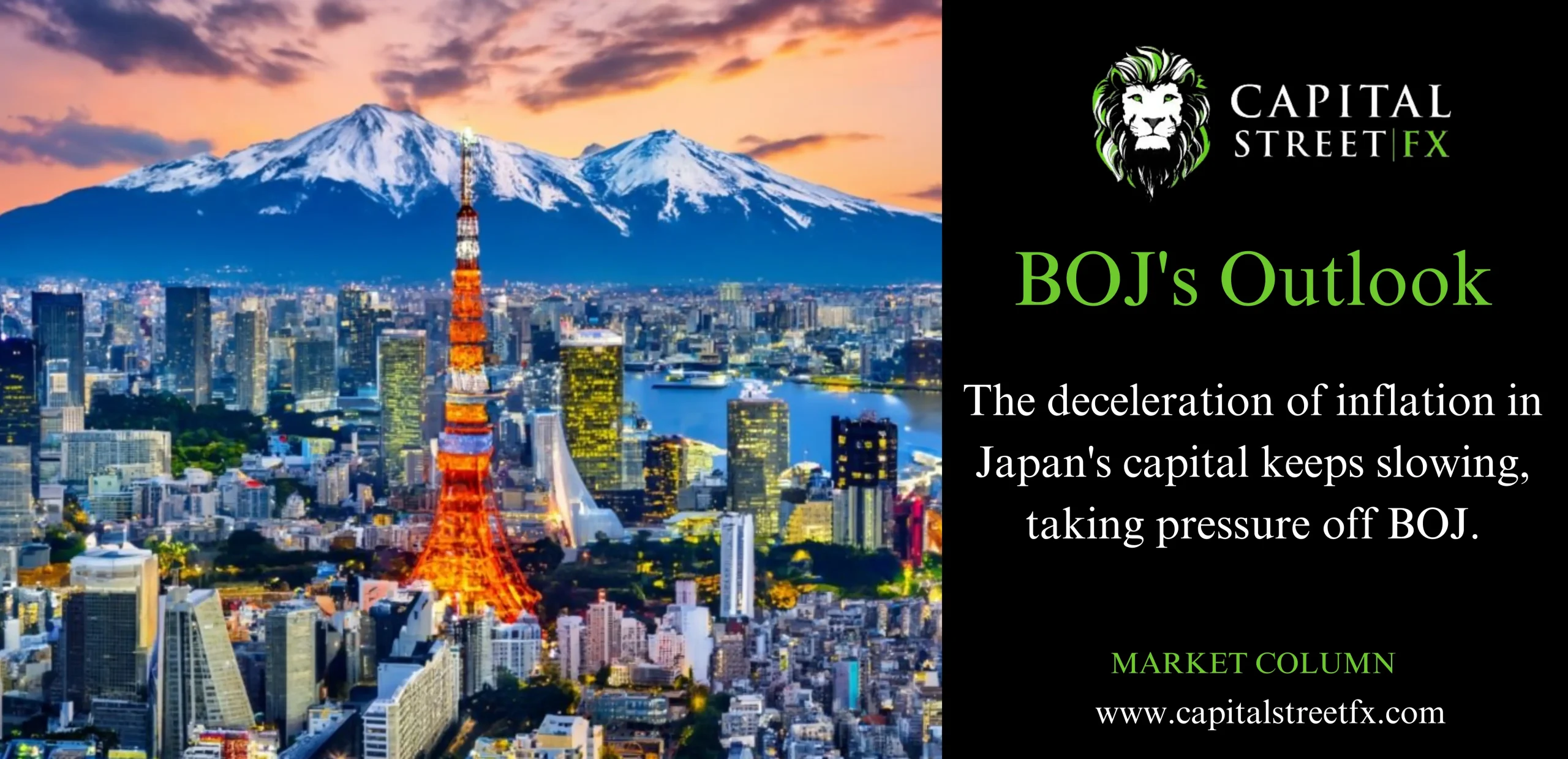The deceleration of inflation in Japan’s capital keeps slowing, taking pressure off BOJ.
In December, Tokyo’s core inflation slowed for the second consecutive month, with easing cost-push pressures, offering the Bank of Japan (BOJ) some relief from the urgency to exit ultra-loose monetary policy.
The Tokyo inflation data, a key indicator for national trends, will be closely scrutinized at the upcoming BOJ policy-setting meeting on January 22-23. Household spending dropped for the ninth consecutive month in November, highlighting Japan’s fragile economy, and potentially cautioning the BOJ against prematurely phasing out its massive stimulus.
Tokyo’s core consumer price index (CPI) rose 2.1% in December, meeting market forecasts, following a 2.3% increase in November. The “core core” index, excluding both fresh food and fuel prices, rose 3.5% in December. Analysts note a slowing pace in price hikes and anticipate challenges in achieving sustained 2% inflation.
Energy prices fell 18.8% in December, and food price increases slowed to 6.0%. Despite inflation exceeding the 2% target, the BOJ is expected to maintain ultra-loose policy amid uncertainties.
Governor Kazuo Ueda emphasizes the need for policy to remain accommodative until cost-push inflation transitions to demand-driven increases supported by substantial wage gains.
Market expectations for a January policy shift have waned, influenced by a recent earthquake and Governor Ueda’s comments on maintaining accommodative monetary settings. The BOJ’s regional branch managers’ meeting on Thursday may provide insights into policymakers’ confidence in sustained wage gains.
The BOJ continues to uphold dovish policies, diverging from global peers and raising interest rates to counter inflation risks.

